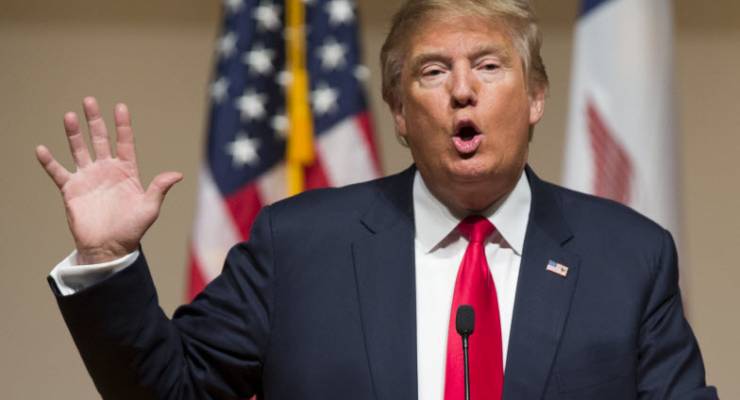
The Department of Foreign Affairs has refused to release any analysis done on the policies of US President Donald Trump before his election last year, warning it could hurt Australia’s international relations and national security.
Australia’s relations with the United States have come under intense scrutiny over the past fortnight after The Washington Post revealed a tense call between Prime Minister Malcolm Turnbull and Trump over a deal Turnbull had made with former US president Barack Obama for the transfer of 1250 refugees from Manus Island and Nauru to the US.
Trump labelled it a “dumb deal”, and the bad blood got worse when White House press secretary Sean Spicer not once but three times called Turnbull “Trumble”, and later the White House confused his job with that of a president, and left his name off a list of people Trump had spoken to.
[The Turnbull-Trump phone call transcript]
So what analysis did the government do on the potential impact of Trump’s policies, like the immigration ban, or pulling out of the TPP, or pulling out of the Paris climate agreement, on Australia? The government is refusing to say.
Just after Trump’s victory in November last year, Crikey filed a freedom of information request seeking access to Department of Foreign Affairs and Trade analysis of Trump’s policies during 2016. The department initially delayed providing a response on the grounds of the Christmas break, and then rejected providing any of the documents when the extended response date was reached last week.
“I …consider that the release of the material in question would or could reasonably be expected to damage Australia’s national security and international relations,” Lucienne Manton, the assistant secretary in the United States branch of DFAT, said in a letter to Crikey.
[Hard lessons for Turnbull: Trump doesn’t do diplomacy]
The department refused to disclose the exact documents it was blocking, but said documents assessing Australia’s bilateral relationship with the United States, other countries and international organisations were included.
DFAT also blocked some documents created for briefing Foreign Minister Julie Bishop for cabinet on the grounds it would reveal cabinet discussions. The department consulted the cabinet secretariat in reaching this conclusion.
Crikey has appealed the decision.








In a darkly ironic twist, our petty and cruel refugee policy could now prove a historic national security mistake. I’d say we as a nation deserve this situation if so many of us didn’t oppose it. I wonder how many Australians, especially now in light of Trump’s victory, are in favour of terminating this deal?
Perhaps it’s just uncharacteristically honest about the TPP turkey and assesses the impact on Australia of its death as being approximately zero (or even positive!)? You could understand why the government would be reluctant for something like that to see the light of day.
The Wiggles’ song ‘Hot potato, hot potato’ is apt background music to this article.
I suspect Julie Bishop’s slight tack towards the Chinese approach on the South China Sea dispute suggests the nature of the thinking.
Could this be our very own Oz CableGate – dyspeptic opinions of the Hegemon?